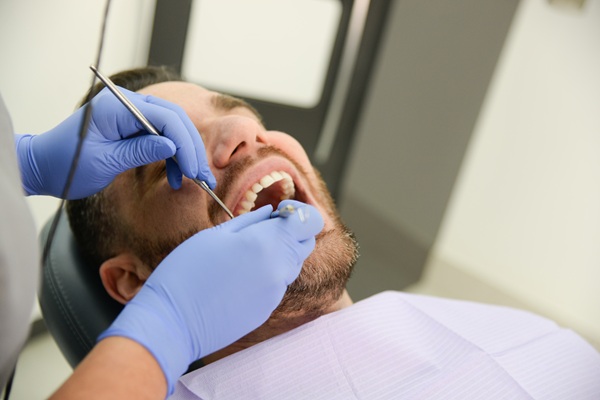5 Reasons to Visit an Emergency Dentist for Tooth Extraction

Seeing an emergency dentist for tooth extraction is sometimes necessary when pain, damage, or infection develops suddenly. Tooth extractions are typically planned in advance, but urgent situations may require immediate dental care to relieve symptoms and prevent further complications. Knowing when to seek help from an emergency dentist ensures that patients receive prompt and effective treatment when time is of the essence.
1. Severe tooth pain
Persistent or intense tooth pain is one of the most common reasons to visit an emergency dentist. Pain that interferes with sleep, eating, or daily activities may indicate an underlying issue, such as a deep cavity, advanced decay, or nerve damage. When other restorative treatments are no longer effective, extraction may be the most suitable option to alleviate discomfort and protect the surrounding teeth.
2. Abscess or infection
Dental infections can spread rapidly without prompt treatment. An abscessed tooth often presents with swelling, pus, foul odor, and fever. This type of infection can pose serious health risks if it spreads to the jaw, face, or bloodstream. An emergency dentist can assess the severity of the infection and determine if extraction is necessary to remove the source of bacteria and support healing.
In some cases, antibiotics may be prescribed before or after the procedure to reduce the risk of further complications. Removing an infected tooth can prevent damage to surrounding structures and reduce the likelihood of needing more invasive treatment later.
3. Fractured or broken tooth
Teeth that break near the gumline or suffer severe fractures may not be salvageable through bonding, crowns, or root canal therapy. An emergency dentist evaluates whether a fractured tooth is salvageable or if extraction is the safest course of action. Delaying treatment may lead to worsening pain, exposed nerves, or additional structural damage.
Common causes of dental fractures include sports injuries, biting hard objects, and untreated decay. Immediate evaluation helps determine the best plan for long-term oral health.
4. Advanced gum disease
Periodontal disease can weaken the bone and tissues that support the teeth. In advanced stages, teeth may become loose or shift out of place. An emergency dentist may recommend extraction if the tooth is no longer stable or poses a risk to nearby teeth and tissues.
Removing a tooth affected by gum disease can help stop the progression of infection and create a healthier environment for the remaining teeth. It may also be a necessary step before restoring the area with dental implants or dentures.
5. Swelling and facial pressure
Sudden swelling or facial pressure associated with a tooth can signal a dental emergency. These symptoms may occur in conjunction with an infection, trauma, or a nerve block. If untreated, the problem can worsen rapidly and affect nearby tissues. Visiting an emergency dentist for evaluation and extraction can prevent further complications and restore comfort.
An emergency dentist can provide timely care when a tooth extraction cannot wait. Prompt evaluation and treatment help relieve pain, protect oral health, and prevent the spread of infection. For more information or to schedule a consultation, call Matthew J. Clemente, DDS at (518) 237-2202.
To schedule a consultation, request an appointment on our website at https://drclemente.com or call Matthew J. Clemente, DDS at (518) 599-7523 for an appointment in our Troy office.
Check out what others are saying about our dental services on Yelp: Emergency Dentist in Troy, NY.
Recent Posts
An emergency dentist is a great resource to make use of when dealing with an infected tooth. If infections go ignored, they can become significantly worse. There are a lot of signs to look out for when trying to determine whether a visit to an emergency dentist is necessary. These signs should be reviewed so…
Looking for information on general dentistry preventive care? Many people think that routine appointments with a dentist are just for cleanings and examinations, however, that is far from the truth. These routine appointments can also be used for preventive care. Preventive care helps to keep the patient's teeth and gums in good oral health, by…
Your general dentist can give you regular dental cleanings. This type of treatment can keep bad bacteria from causing significant dental damage. That is why keeping your dental appointments is crucial. Here are the details about how important dental cleanings are, according to your general dentist.Regular dental cleanings can remove surface discolorations or stains. A…
Loose teeth require immediate attention from a general dentist. Without treatment, the teeth can fall out, which would result in a need for replacement. Thankfully, general dentists have a lot of treatment options. Wondering what can cause loose teeth? Some of the more common reasons why someone would experience a loose tooth is because they are…


